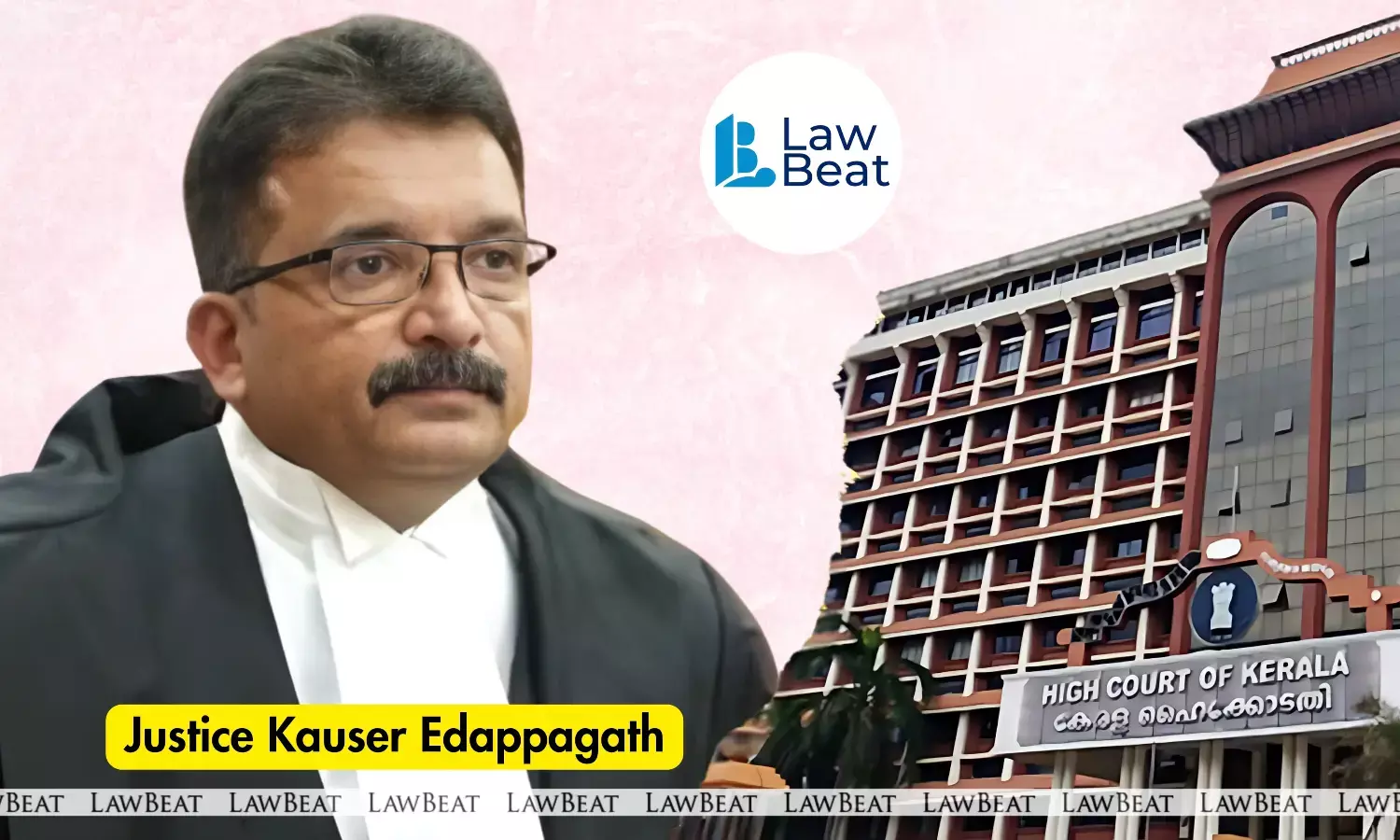Kerala HC Rules Major Christian Daughter Not Entitled to Maintenance, Upholds Support for Wife

Kerala High Court limits child maintenance entitlement to age of majority
The Kerala High Court has set aside the Family Court order granting monthly maintenance to a 27 year old unmarried daughter after finding that a major Christian daughter, who is not suffering from any physical or mental disability, cannot claim maintenance from her father under Section 125 of the Code of Criminal Procedure.
The Court, however, upheld the maintenance awarded to the wife, holding that her decision to reside separately due to the medical and educational needs of their younger son constituted a sufficient reason and did not disentitle her from receiving support from her husband.
Justice Kauser Edappagath, while partly setting aside the impugned order, observed, "The scheme under Section 125(1)(c) of Cr.P.C. (Section 144(1)(c) of BNSS), thus, contemplates that a claim of maintenance by a daughter who has attained majority is admissible only when, by reason of any physical or mental abnormality or injury, she is unable to maintain herself."
The matter arose from a revision petition filed by Varghese Kuruvila, also known as Sunny Kuruvila, challenging the order of the Family Court, Ernakulam, dated 9 March 2021 in a maintenance case instituted by his wife and daughter.
The respondents had sought monthly maintenance of Rs 30,000 and Rs 15,000 respectively. The Family Court granted the wife Rs 20,000 per month and the daughter Rs 10,000 per month, in addition to a consolidated sum of Rs 30,000 awarded to the wife towards educational expenses incurred on behalf of the daughter between January 2017 and April 2017.
The High Court examined three principal grounds raised by the petitioner.
The first ground was that the daughter had already attained majority at the time of filing the petition and was therefore not entitled to maintenance in the absence of any disability. The second ground was that the wife had been living separately without sufficient cause. The third ground was the assertion that the wife was employed and financially capable of maintaining herself.
The Court held that Section 125 of the CrPC, now reflected in Section 144 of the Bharatiya Nagarik Suraksha Sanhita, strictly limits the right of a child to claim maintenance from a parent only until the age of majority, except where an unmarried daughter suffers from a physical or mental abnormality or injury that prevents her from maintaining herself. The Court observed that the evidence showed that the daughter was a practising lawyer and that there was no allegation of any disability.
It further clarified that the judgments of the Supreme Court in Jagdish Jugtawat v Manju Lata and Abhilasha v Parkash, which permitted unmarried Hindu daughters to claim maintenance until marriage, were based on Section 20(3) of the Hindu Adoptions and Maintenance Act which imposes a civil liability on Hindu fathers to maintain unmarried daughters who have attained majority.
The High Court noted that while Hindu and Muslim personal laws contain provisions obliging fathers to maintain unmarried major daughters, there exists no corresponding personal law for Christians. Referring to the Full Bench judgment in Mathew Varghese v Rosamma Varghese, the Court reiterated that Christian personal law requires a father to maintain only minor children.
It therefore concluded that the Family Court had erred in granting maintenance to the adult Christian daughter. The order was set aside to that extent.
On the issue of the wife’s entitlement to maintenance, the Court found that she had reasonable cause to live apart from her husband. Evidence established that she was residing in Mumbai to care for their ailing younger son who was pursuing his studies there.
The Court held that parental obligations are broader than marital obligations and that a mother’s decision to stay with an ailing child for education and medical treatment constitutes a valid reason to live separately. In such circumstances, the statutory bar under Section 125(4) of the CrPC was not attracted.
The Court further rejected the contention that the wife was financially independent.
It noted her admission that she engaged in part-time work intermittently but found no evidence of permanent employment or steady income. Citing Supreme Court precedents including Rajnesh v Neha, Chaturbhuj v Sita Bai, and Sunita Kachwaha v Anil Kachwaha, the Court emphasized that the test is not whether the wife earns some income but whether she can maintain a standard of living comparable to what she enjoyed in the matrimonial home.
The petitioner had admitted that he was the proprietor of AGL International Recruiting Agency and the owner of two flats valued at Rs 90 lakh.
His bank records reflected average monthly withdrawals of Rs 60,000. On this financial capacity, the Court found no reason to interfere with the Family Court’s award of Rs 20,000 per month to the wife. It also upheld the Rs 30,000 awarded towards educational expenses, holding that a wife’s claim for maintenance includes the educational needs of a dependent child, even if the child is major.
The revision petition was accordingly allowed in part, with the maintenance to the daughter being set aside and all other components of the Family Court’s order being confirmed.
Case Title: Varghese Kuruvila @ Sunny Kuruvila v. Annie Varghese & Anr.
Bench: Justice Kauser Edappagath
Date of judgment: October 29, 2025
